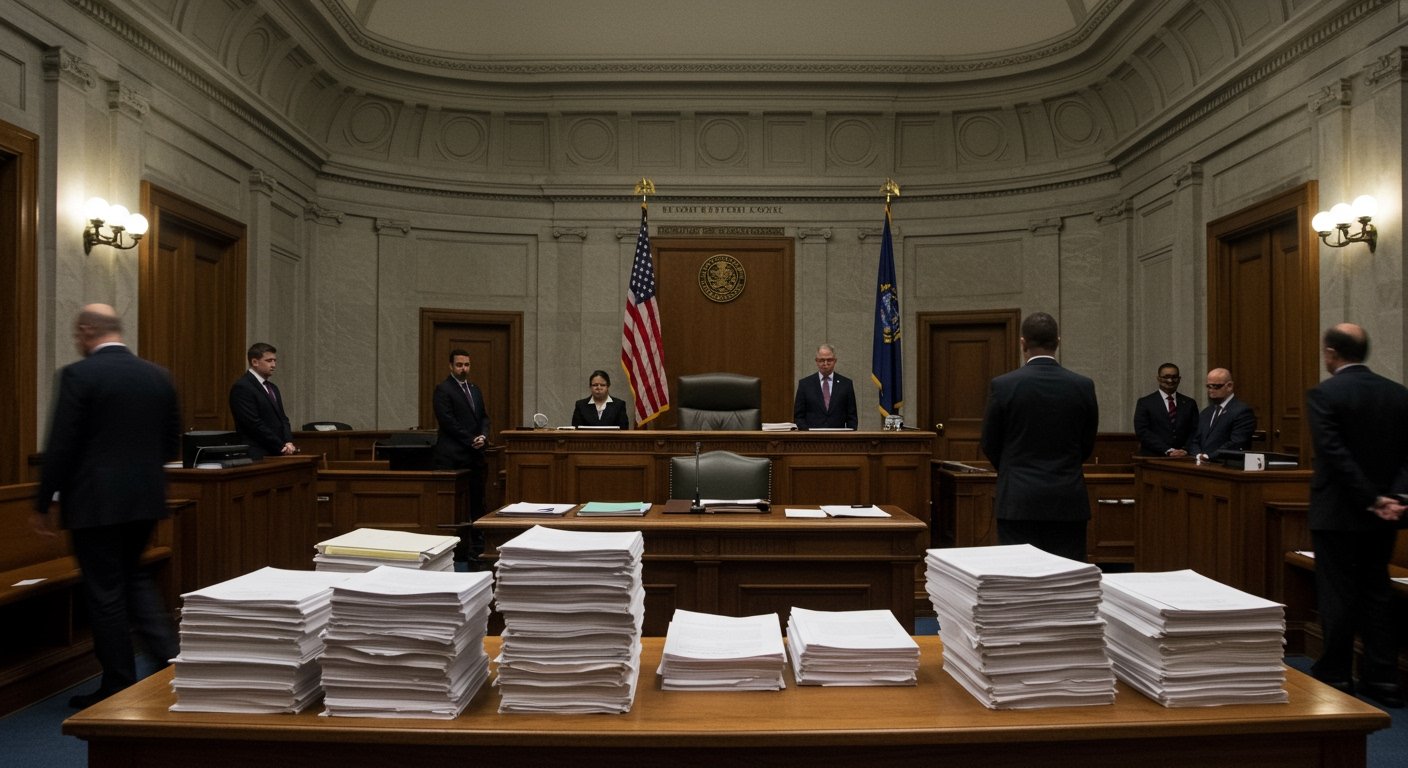Washington D.C. – In a significant move to bolster national economic security and ensure fair competition, the U.S. Departments of Justice (DOJ) and Homeland Security (DHS) have announced the formation of a new, cross-agency Trade Fraud Task Force. This collaborative initiative aims to aggressively investigate and prosecute individuals and organizations engaged in fraudulent trade practices, thereby protecting American businesses, consumers, and the integrity of U.S. markets. The partnership represents a unified commitment to confronting complex trade crime schemes that undermine national security and economic stability.
The Genesis of the Initiative
The establishment of this task force aligns with the administration’s broader “America First Trade Policy,” which emphasizes stringent compliance with trade laws and the payment of all applicable tariffs and duties. Officials highlighted that this effort is also consistent with Executive Order 14243, which directs agencies to enhance their capabilities in detecting overpayments and fraud. Trade fraud is recognized not only as a drain on vital government revenue, which is reinvested in America, but also as a threat to critical domestic industries, consumer confidence, and overall national security. Acting Assistant Attorney General Matthew R. Galeotti of the Justice Department’s Criminal Division stated, “Trade fraud is not a victimless crime, and it won’t be tolerated.” This proactive stance acknowledges that unchecked fraud in U.S. markets robs hardworking Americans and harms the public.
A Unified Front Against Trade Crime
This new task force signifies a potent alliance between two key federal departments. The DOJ, through its Civil and Criminal Divisions, will combine its legal expertise and prosecutorial power with the extensive customs authorities, investigative capabilities, and frontline enforcement experience of the DHS, specifically U.S. Customs and Border Protection (CBP) and Homeland Security Investigations (HSI). Assistant Director for Global Trade Ivan Arvelo of ICE HSI emphasized the commitment to interagency collaboration, stating, “Enforcing U.S. international trade laws is one of our agency’s top priorities, and this revitalized and expanded Trade Fraud Task Force is a significant step in the right direction.” This integrated approach is designed to streamline investigations and strengthen partnerships.
Mandate and Scope of Operations
The task force’s mandate is comprehensive, targeting a range of fraudulent activities. Its operations will focus on aggressive enforcement actions against parties that seek to evade tariffs and other duties, as well as against smugglers importing prohibited goods into the American economy. Investigations will likely scrutinize practices such as misclassification of goods, undervaluation, misreporting of country of origin, and transshipment – where goods are rerouted and relabeled to disguise their true origin to evade tariffs. The initiative will leverage legal authorities including the Tariff Act of 1930, the False Claims Act (FCA), and criminal statutes under Title 18 related to trade fraud and conspiracy. Recent DOJ civil settlements have already addressed evaded duties on products like multi-layered wood flooring, plastic resin, extruded aluminum products, and quartz surface products, demonstrating a pattern of dedicated enforcement.
Protecting American Businesses and Consumers
A primary objective of the Trade Fraud Task Force is to create a level playing field for honest American businesses and manufacturers. By preventing bad actors from gaining an unfair competitive advantage through fraudulent means, the task force aims to support American jobs and economic growth. Assistant Attorney General Brett A. Shumate of the Justice Department’s Civil Division remarked, “The Civil Division will coordinate with law enforcement partners to bring to justice any parties attempting to harm American workers through evasion of tariffs and other duties.” The initiative is expected to curb the influx of illicit goods, safeguard consumers from potentially unsafe counterfeit or substandard products, and ensure that government revenue is not lost to fraudulent schemes. The news highlights a commitment to upholding the principles of fair trade that benefit American enterprise.
Leveraging Whistleblowers and Data Analytics
In its fight against trade crime, the task force will also harness the power of intelligence and the crucial role of whistleblowers. The DOJ has expanded its Corporate Whistleblower Awards Pilot Program to include tips related to “trade, tariff, and customs fraud by corporations,” incentivizing insiders and competitors to report illicit activities. Furthermore, the task force is expected to employ sophisticated data analytics, a technique already utilized by the DOJ’s Fraud Section in other areas, to identify and pursue high-profile prosecutions more effectively. Domestic industries most harmed by unfair trade practices are also encouraged to provide referrals and cooperate with the task force.
Key Statements from Leadership
Assistant Attorney General Brett A. Shumate underscored the policy’s support for American manufacturing, stating the Civil Division will “coordinate with law enforcement partners to bring to justice any parties attempting to harm American workers through evasion of tariffs and other duties.” Acting Assistant Attorney General Matthew R. Galeotti emphasized accountability, noting that “trade fraud is not a victimless crime.” ICE HSI Assistant Director Ivan Arvelo reinforced DHS’s dedication, citing “unique customs authorities, expertise, and commitment to interagency collaboration” in pursuing trade-related crimes. Deputy Assistant Attorney General Brenna Jenny highlighted past civil settlements as evidence of ongoing efforts.
Broader Implications and Future Outlook
The creation of this task force signals a heightened enforcement environment for companies engaged in international trade. The DOJ’s Criminal Division has made trade and customs fraud a top enforcement priority, indicating that importers should expect increased scrutiny. This coordinated approach by the Departments of Justice and Homeland Security is designed not only to combat fraud but also to bolster national security by preventing prohibited goods from entering the American economy and disrupting criminal networks. The collective expertise and expanded resources dedicated to this mission are poised to make a significant impact on the landscape of international trade enforcement, ensuring greater compliance and protecting the economic interests of the United States. This news serves as a critical reminder for businesses to review and strengthen their import compliance programs.












